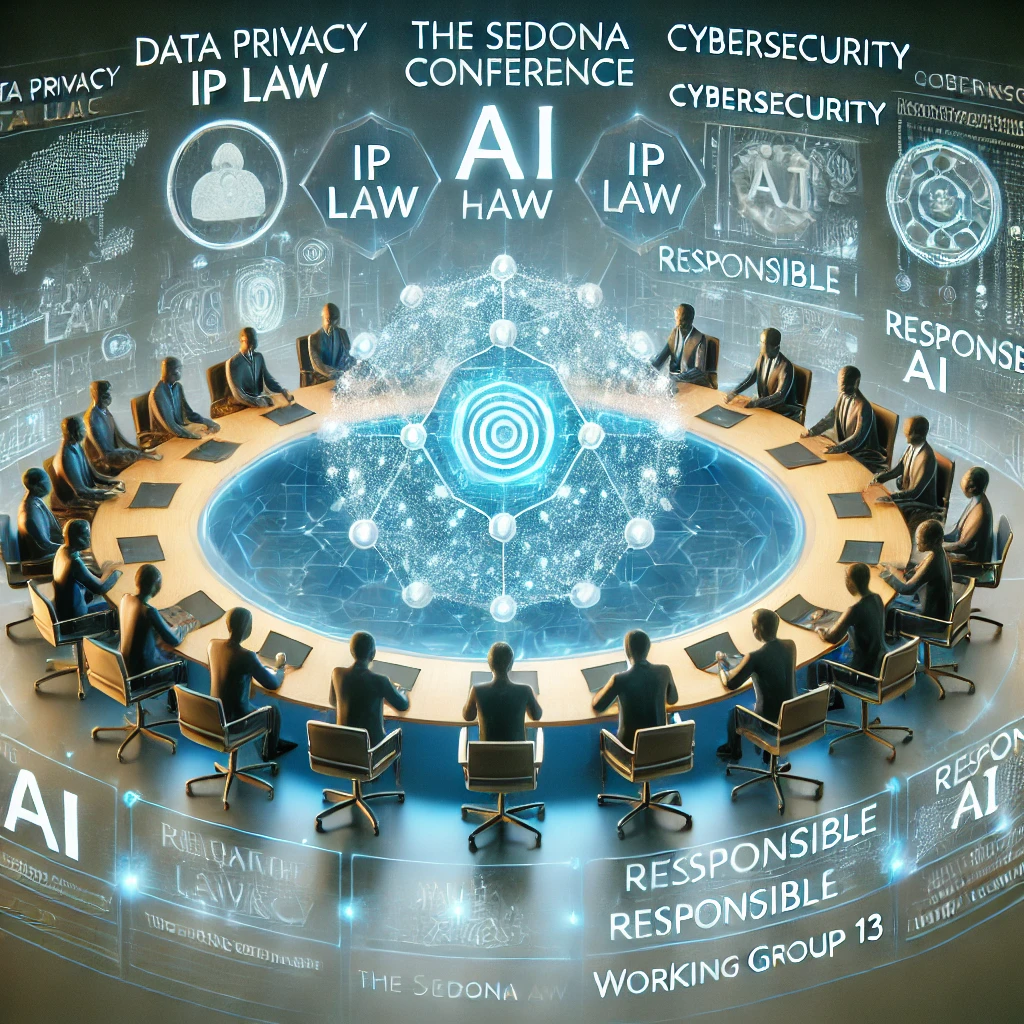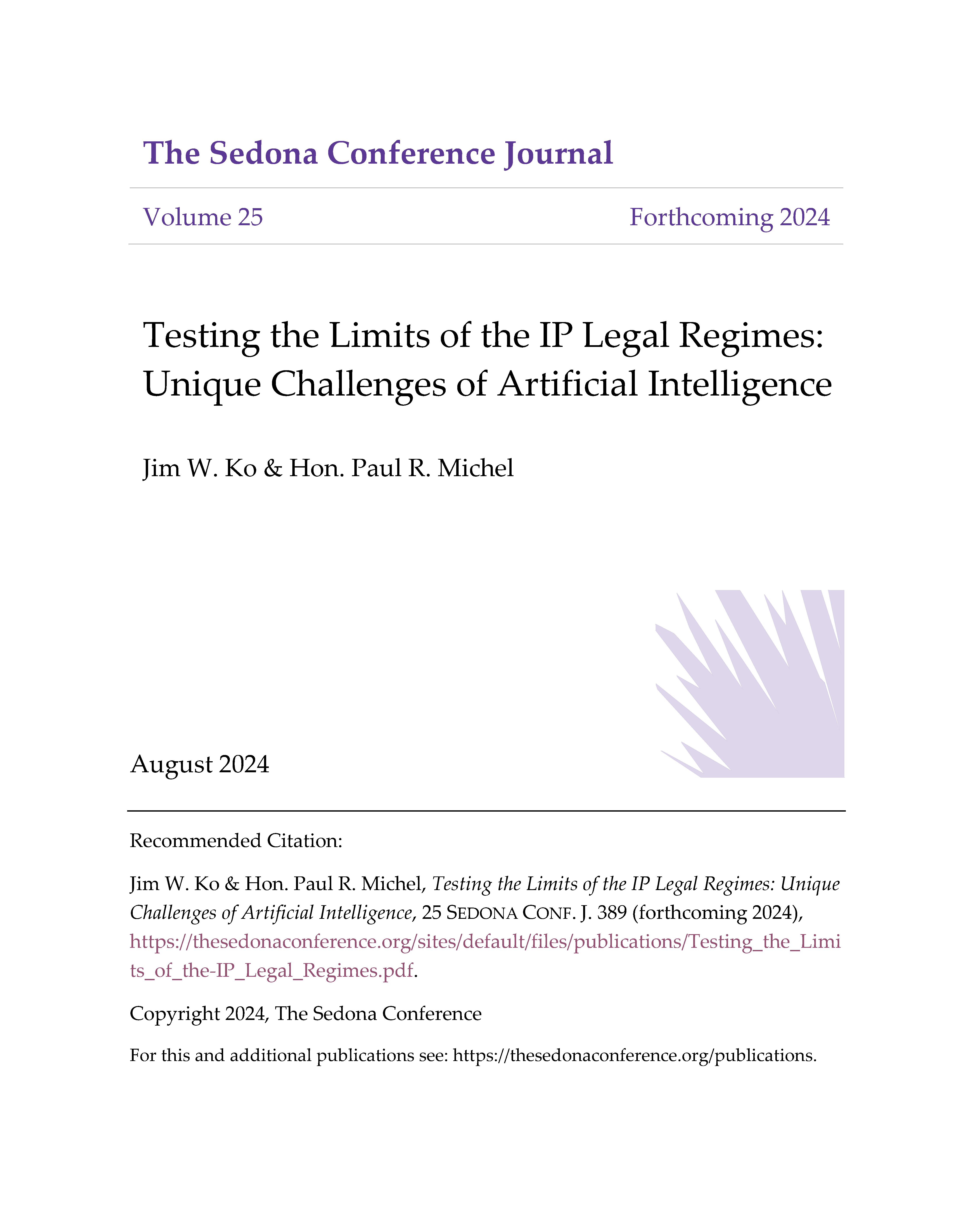Category: Responsible AI
-
“Because I’m not white and I’m a girl…”: On the AI road to autonomous discrimination? [Part 2 of 2]
![“Because I’m not white and I’m a girl…”: On the AI road to autonomous discrimination? [Part 2 of 2]](https://koailaw.com/wp-content/uploads/2025/02/RBG.webp)
As AI becomes increasingly embedded in decision-making, its potential to reinforce systemic discrimination is both undeniable and alarming. My daughter’s experience—facing bias as a girl playing boys’ varsity basketball—mirrors the broader reality of how unchecked human prejudices can be codified into algorithmic decision-making. While AI can theoretically serve as a force for fairness, it is… Read more
-
“Because I’m not white and I’m a girl…”: On the AI road to autonomous discrimination? [Part 1 of 2]
![“Because I’m not white and I’m a girl…”: On the AI road to autonomous discrimination? [Part 1 of 2]](https://koailaw.com/wp-content/uploads/2025/02/glass-ceiling.webp)
In a world where systemic discrimination still lingers, my daughter’s experiences highlight the persistent biases that shape opportunities and dreams. As artificial intelligence increasingly influences decision-making, its reliance on biased historical data threatens to amplify these prejudices, transforming them from systemic injustices into autonomous discrimination. If left unchecked, AI may not only reflect but also… Read more
-
In LLM Providers We Trust…? [Conclusion of the Parsing the Blame for AI series]
![In LLM Providers We Trust…? [Conclusion of the Parsing the Blame for AI series]](https://koailaw.com/wp-content/uploads/2025/01/DALL·E-2024-12-09-03.50.14-A-surreal-illustration-of-an-AI-fox-represented-by-a-sleek-robotic-design-with-glowing-blue-eyes-standing-watch-in-front-of-a-traditional-henhouse.-.webp)
AI disrupts traditional liability frameworks, making strict product liability ill-suited and negligence hard to establish. Data privacy laws are outdated and ineffective against AI’s pervasive data collection, while algorithmic discrimination in hiring and services introduces bias risks. Regulatory actions, like FTC oversight, remain limited, leaving significant gaps in accountability and relying heavily on future legislative… Read more
-
Oops, AI did it again [Part 4 of the Parsing the Blame for AI series]
![Oops, AI did it again [Part 4 of the Parsing the Blame for AI series]](https://koailaw.com/wp-content/uploads/2025/01/DALL·E-2024-12-28-18.23.13-A-futuristic-female-robot-with-long-golden-blonde-hair-styled-in-soft-beachy-waves-seated-inside-a-sleek-modern-car-as-it-collides-front-first-with.webp)
Generative AI complicates liability laws as it autonomously produces harmful or inaccurate outputs. Traditional doctrines like strict liability often fail, while negligence claims hinge on vague “reasonable care” standards. Cases like Walters v. OpenAI highlight challenges in addressing AI’s unpredictable harms. Courts must adapt laws to balance accountability and innovation, especially as AI’s autonomy increases. Read more
-
GenAI: The Ultimate in Diffusion-of-Responsibility Technology [Part 3 of the Parsing the Blame series]
![GenAI: The Ultimate in Diffusion-of-Responsibility Technology [Part 3 of the Parsing the Blame series]](https://koailaw.com/wp-content/uploads/2024/12/DALL·E-2024-12-28-05.54.51-A-cartoon-style-illustration-of-robots-arranged-in-a-circle-each-robot-pointing-at-the-one-next-to-it.-In-the-center-of-the-circle-the-text-Not-My-.webp)
Generative AI (GenAI) has transformed how businesses and individuals leverage artificial intelligence. However, it also introduces unprecedented challenges in assigning accountability and managing liability for AI-generated content or decisions. Read more
-
Software and negligence and contract law [Part 2 of the Parsing the Blame for AI series]
![Software and negligence and contract law [Part 2 of the Parsing the Blame for AI series]](https://koailaw.com/wp-content/uploads/2024/12/DALL·E-2024-12-13-13.00.07-An-AI-robot-in-a-futuristic-setting-depicted-as-clumsily-and-negligently-breaking-a-fragile-object-such-as-a-glass-vase-or-electronic-device.-The-ro.webp)
Who will be liable when an AI implementation harms either its users or unrelated third parties? In Part 1 of this series last week, we explored how software is presumptively treated as a “service”—not a “product”—and thus is not subject to strict product liability law. So what theories of liability are applicable when software output… Read more
-
Software and product liability law [Part 1 of the Parsing the Blame for AI series]
![Software and product liability law [Part 1 of the Parsing the Blame for AI series]](https://koailaw.com/wp-content/uploads/2024/12/DALL·E-2024-12-03-20.54.09-A-detailed-and-symbolic-illustration-showing-artificial-intelligence-AI-represented-as-a-glowing-humanoid-figure-or-neural-network-contorting-its-bo.webp)
Explore the complexities of AI liability in the evolving legal landscape. From product liability to on-presmises software to software-as-a-service (SaaS), uncover how laws for tangible goods differ from those governing intangible services like AI. Delve into key cases, challenges, and the implications for accountability in our interconnected AI age. Read more
-
The Sedona Conference Launches Dialogue on Artificial Intelligence and the Law

The Sedona Conference, one of the nation’s leading nonpartisan think-tanks on issues of law and technology, will be launching its Working Group 13 on Artificial Intelligence and the Law in January, building on its long-standing reputation in the areas of eDiscovery, digital records management, patent litigation, trade secrets, cybersecurity, data privacy, and cross-border data transfers.… Read more
-
The Sedona Conference publishes article on Testing the Limits of the IP Legal Regimes: The Unique Challenges of AI

When Paul R. Michel was approached about co-authoring a paper on the substantive issues that generative artificial intelligence poses to intellectual property law, the retired chief judge of the U.S. Court of Appeals for the Federal Circuit didn’t think the challenges were all that formidable. But as Judge Michel and co-author Jim W. Ko began… Read more
![Confessions of an AI-Assisted Legal Blogger [Epilogue of AI & Copyrights Series – Part 1 of 2]](https://koailaw.com/wp-content/uploads/2025/05/blog-robot-blank-slate.png)